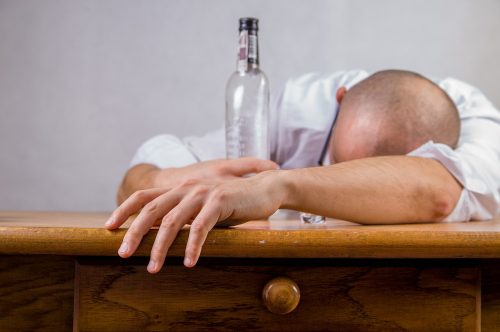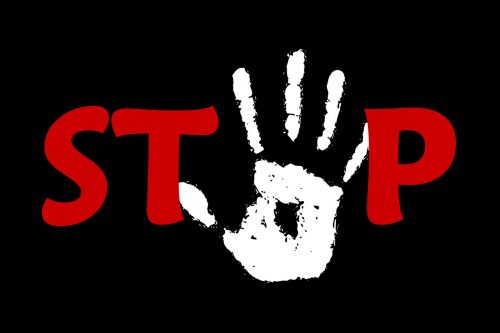To ease their stress or emotional pain, people rely on substances that free them from their despair. These substances include alcohol, tobacco, caffeine, marijuana, hallucinogens, stimulants, and others. Using them can often lead to worse mental health conditions. Addiction is an unhealthy mental state an individual should watch out. One of the most common forms of addiction is substance abuse.

It was only recently experts classified addiction as a disease. It first started with alcoholism recognized as a disease by the American Medical Association (AMA) in 1956. Soon after, in 1987, addiction was finally considered as a disease. This delay was due to the scientist’s view of the willpower to say no.
With the emerging technologies and research, researchers found out that addiction does lead to physical changes in the brain. These changes lead to lowered self-control, hence, intensifying the cravings for their addiction. This discovery discredited the earlier arguments of substance abuse as a choice which could stop anytime they wanted to.
Signs And Symptoms
“Addiction is a non-medical term that refers to a wide range of mental disorders called Substance Use Disorders. There are a variety of different types of Substance Use Disorders, including Alcohol Use Disorder, Stimulant Use Disorder, and Cannabis Use Disorder, just to name a few.” Hailey Shafir, LPCS, LCAS, CCS-I said. Therefore, addiction is not limited to substance abuse; it can also be in the form of behavioral addiction. It includes gambling, working, or continued use of a computer. But, it all share the same signs and symptoms. If you’re not experiencing some of these symptoms may be someone close to you is. To help you look out for them, here are some of the most common signs and symptoms of addiction.
- Physical Signs
o Weight Loss
o Looking pale or undernourished
o Appetite Changes
o Damage or Disease
o Energy Changes
- Behavioral Signs
o Secretive and Isolated
o Disrupted Sleeping Patterns
o Increase in Tolerance
o Denial
o Financial Difficulties
o Dropping Hobbies
- Psychological Signs
o Obsession
o Dependence on Substance
o Pushed to take on more risk
o Severe Mood Changes
If you can determine these signs or symptoms immediately, you can seek the appropriate help before your condition worsens. Addiction is a critical condition that may also be affecting someone you care. Make sure to watch out for them and approach them if you notice any of these signs.

When watching out for your loved one, make sure to not jump straight into conclusions. Some of these signs or symptoms may take place due to many reasons. People usually have severe mood and energy changes because of several factors. They may also be going through other problems causing a difference in their behavior.
Approach them with caution, and make sure to confront them only once you’re entirely sure. As a parent, it is alright to check on your children since teenagers are most prone to addiction. However, they must remain careful about discussing this with their children. It is a sensitive topic that may affect your relationship with them. “Admitting you have a problem is the first step in treating your addiction,” says Dr. Howard Samuels, PsyD
Treatment
It is never too late to recover from your addiction. Though, it’ll be best to treat yourself immediately because the deeper you become addicted, the harder it’ll stop. It does not become a battle of willpower once changes in your brain happened. Make sure to get the appropriate help after noticing a strong dependence on a specific behavior or substance. Listed below are some methods you can take to help you break free from your addiction.

1. Recognize the Problem
The first important step in treatment is by recognizing there is a problem. Upon recognition, you can move a step forward. Denial is a considerable obstacle one must overcome for the recovery process to be successful.
2. Seek Professional Attention
Medical attention can be in the form of therapy or the use of medication. The most effective means of treating this condition would be using both. However, it is best to get a proper assessment from an expert before resolving to this treatment. Through therapy, the individual will be able to understand their condition better. Medications are used to control their cravings and reduce withdrawal symptoms.
3. Seek And Offer Support
If you or a close friend is experiencing this condition, it is best to be there for each other. Substance abuse occurs due to a desire to relieve yourself from pain or stress. Try to make your friend feel they don’t need to depend on alcohol or drugs. Show them a friend’s company will always be enough. “The first step was to understand that our goal was to mainstream addiction treatment into the general delivery of health care.” Navdeep Kang, PsyD explains.
4. Encouragement And Persistence
Sometimes it is not enough when you try first. Keep on encouraging your friend but always remain calm and gentle.
With enough attention and immediate action, it is possible to cure yourself or someone dear to you from this problem. Addiction is a severe condition where one must break free. However, it is not a simple matter of choice. It is a condition that has led many to despair.